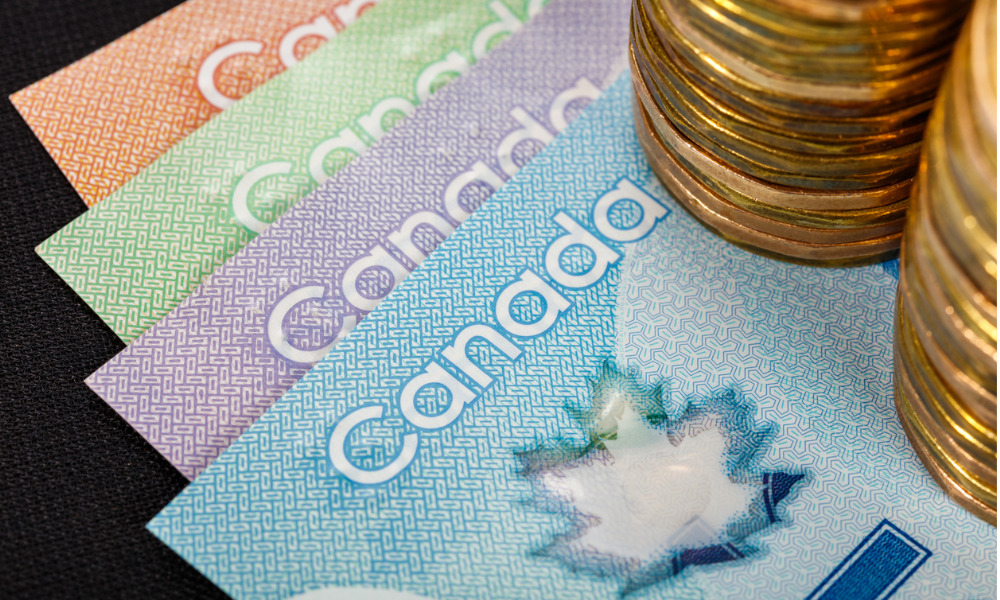Hourly rate to range from $14 to $16.55 with increases

Oct. 1 is set to be a busy day for payroll across Canada as five provinces will be boosting the minimum wage rate that day.
Saskatchewan, Manitoba, Ontario, Nova Scotia, Prince Edward Island and Newfoundland and Labrador will see increases, leading to the wage ranging from $14 to $16.55 per hour.
Saskatchewan: Effective Oct. 1, 2023, the minimum wage will be $14 per hour — up from $13 per hour as of Oct. 1, 2022. Next year, for Oct. 1, 2024, the wage will rise again to $15 per hour.
The increases to the minimum wage for 2022 to 2024 were made by an amendment to The Minimum Wage Regulations. After the final adjustment in 2024, the minimum wage will return to be calculated using an indexation formula. Changes will return to being announced on or before June 30 of each year and take effect on October 1 of the same year.
Some employees do not have to be paid the minimum wage. These include:
- farming, ranching or market garden labourers
- some care providers employed in private homes
- babysitters (only those that are of a very temporary or sporadic nature)
- athletes while engaged in their athletic endeavour
- volunteers for non-profit organizations
- individuals who have a physical or mental disability or impairment and work for a non-profit organization or institution in programs that are educational, therapeutic or rehabilitative.
Manitoba: As of Oct. 1, 2023, the province’s minimum wage will be $15.30. This follows an earlier increase on April 1 to $14.15, after an increase on Oct. 1, 2022 to the rate of $13.50.
That’s because the government previously passed legislative amendments to the Employment Standards Code that, in prescribed circumstances, allow minimum wage to be increased by an additional amount above the legislated inflation-tied formula.
Some groups of employees who are excluded from minimum wage are:
- domestic workers who work less than 12 hours a week
- someone in an approved provincial or federal training program
- election officials, enumerators and any other temporary person appointed under The Elections Act
Ontario: The government is increasing the minimum wage to $16.55 an hour on Oct. 1, 2023, up from $15.50; this increase is tied to the Ontario Consumer Price Index for 2023.
The special minimum wage rates will also increase for:
- students under the age of 18, who work 28 hours a week or less when school is in session or work during a school break or summer holidays, from $14.60 to $15.60 an hour
- homeworkers (those who do paid work out of their own homes for employers), from $17.05 to $18.20 an hour
- hunting, fishing and wilderness guides, from $77.60 to $82.85 per day when working less than five consecutive hours in day, and $155.25 to $165.75 per day when working five or more hours in a day.
Nova Scotia: The minimum wage rate will rise to $15 on Oct. 1, 2023 — up from $14.50 in April. That’s after the province accepted the recommendations from the Minimum Wage Review Committee, which include setting the minimum wage at $15 an hour on Oct. 1, six months sooner than scheduled.
Starting April 1, 2024, Nova Scotia’s minimum wage rate set the preceding April will be adjusted annually on April 1 by the projected annual national CPI percentage change for the previous calendar year, plus an additional one per cent (i.e., if CPI is four per cent on April 1, 2024, the minimum wage will increase to $15.25, based on the April 1, 2023, minimum wage of $14.50 plus five per cent).
Prince Edward Island: The province’s minimum wage will reach $15 per hour by Oct. 1, 2023. That follows an increase of 80 cents on Jan. 1, 2023 to $14.50.
The Employment Standards Board reviews minimum wage annually and provides their recommendation to government after the review is complete.




